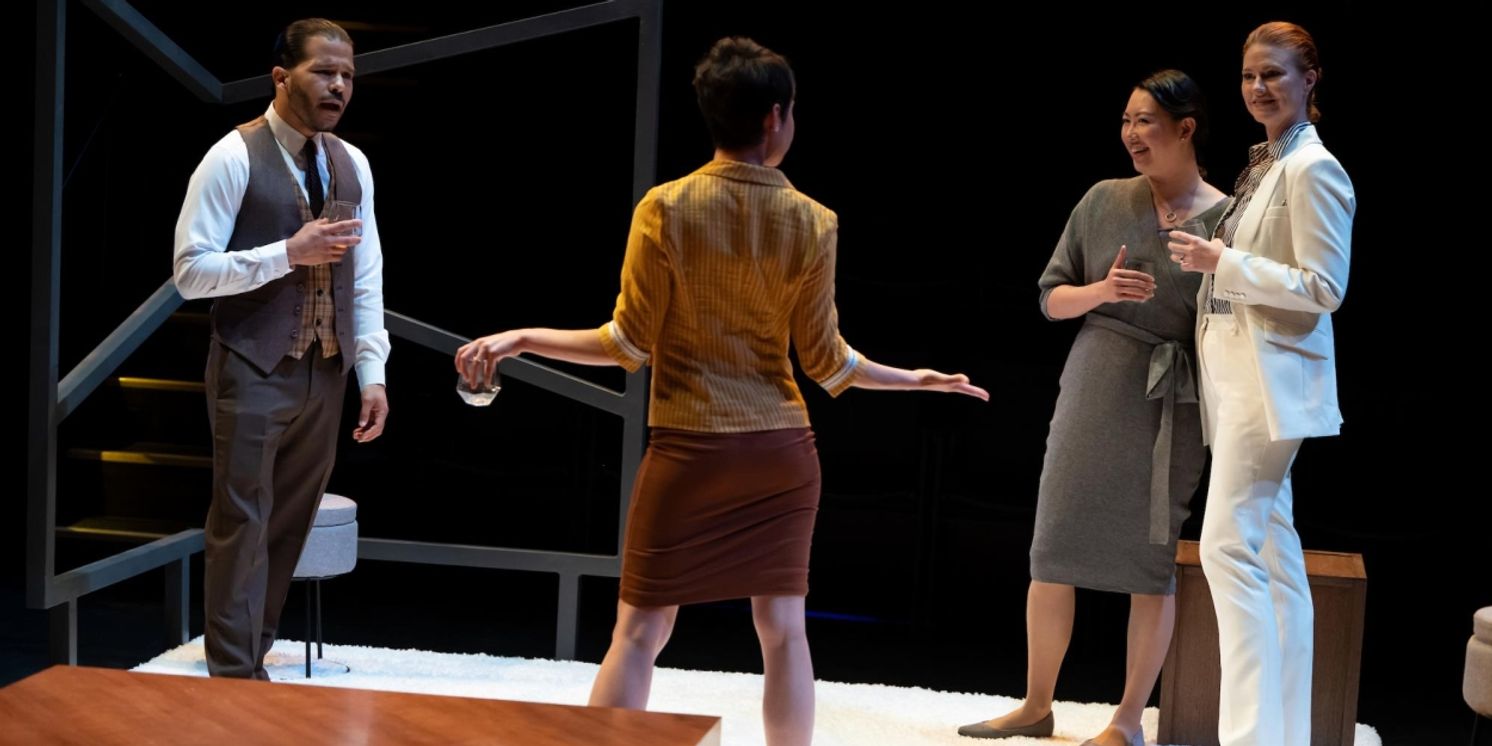Review: BABEL At Contemporary American Theater Festival Probes the Dilemmas That Could Be Presented By Eugenics
Babel, by Jacqueline Goldfinger, directed by Sharifa Yasmin, presented through July 31 by the Contemporary American Theater Festival at the Marinoff Theater.

Over the years, the Contemporary American Theater Festival has often demonstrated a penchant for science fiction. This year's program includes a stellar representative of the genre, Jacqueline Goldfinger's play Babel, which invites us to contemplate a world, apparently in the near future, in which the human genome is so well understood that every person's - and fetus's - potential, including the potential for antisocial behavior - is determinable, and if a child cannot be "certified" while in utero as meeting the mandated genetic risk profile, the child will face lifelong legal discrimination thwarting most forms of career accomplishment. Abortion is freely available, and the resulting pressures to terminate pregnancies when a child is not certified are intense, as is the misery of potential parents whose gestating child is deemed uncertifiable, and probably a menace to society. We witness how these dynamics play out with two couples who are friends.
One, a same-sex couple, Dani (Kate MacCluggage) and Renee (Karen Li) are expecting (via in vitro fertilization). Renee is carrying the pregnancy. They will soon confront the fact that the daughter within Renee will not be certifiable, since genetic testing reveals that the daughter runs an unacceptable risk of antisocial behavior. Dani, with her certified privilege, will find it hard to conceive of, let alone accept, an obstacle she can neither get around nor surmount. Her chosen tactic, encouraging Renee to abort (a matter of a simple injection) gets no buy-in from Renee. Her secondary tactic, trying to bowl over the uncooperative doctor who will not certify the fetus, ends in tears.
The other couple, Ann (Lori Vega) and her husband Jamie (Carlo Alban), though they encounter no difficulties conceiving or obtaining certification, are operating under the weight of a secret one of them is hiding from both the world and from his/her spouse, tied directly to the social policy of encouraging expecting parents to terminate uncertified pregnancies. I won't reveal the nature of the secret nor the spouse who maintains it, but I will say that in the end it impacts both marriages, and the couples are no longer friends.
The play winds up with the two characters we identify with most affirming the creative randomness of humanity and its reproductive process, and rejecting a "brave new world" maintained by the regime of genetic testing and abortions. And this rejection takes into account the potential cataclysm that may befall in the absence of such a regime. In a world such as the play imagines in which natural resources have become scarcer and humanity may well be extinguished in a short time if the social cohesion and the harmony necessary to husband those resources are destroyed - a real risk if too many dangerous people rise to power - the benefits of the testing-and-abortion regime for screening out the lethal bad actors would carry an urgent appeal. (In a real world with so many bad actors in charge, that does not seem a fanciful line of argument. Antisocial behavior really can put the future of our polity and our species at risk.) These two characters, however, opt for the spark of human creativity and its associated transgressiveness, even at a great potential cost. Given the same facts, many in the audience might agree. And many might disagree.
It could seem that, with so many real and pressing problems in the world we actually inhabit, taking the time to consider this currently unlikely set of dilemmas is somewhat frivolous. But that is one of the beauties of science fiction: we are licensed to consider dilemmas that are not ours - just kissing cousins of the ones we struggle with. It's okay; art is up to it. And this script is mostly up to it as well.
Plenty of art went into this performance. A play like this one with many mysteries and reveals requires a director who can orchestrate surprise, and Sharifa Yasmin and the cast kept me off base. At the same time, there never was a break in the intermingled humor and seriousness, evidencing great command of tone. And I liked the imaginative set by Jesse Dreikosen, which enabled an interesting and frequent spatial shuffling of the characters to emphasize meanings and relationships.
Definitely recommended.
Babel, by Jacqueline Goldfinger, directed by Sharifa Yasmin, presented through July 31 by the Contemporary American Theater Festival at the Marinoff Theater, 62 W. Campus Drive, Shepherdstown, WV 25443. Tickets $38-$68 at the link shown below or 681-240-2283 ext. 1. Adult language, sexual behavior, sexual situations. All audience members will be required to show proof of vaccination status and photo ID, and to wear a mask while in the theater.
Production photo credit: Seth Freeman.
Reader Reviews
Videos

